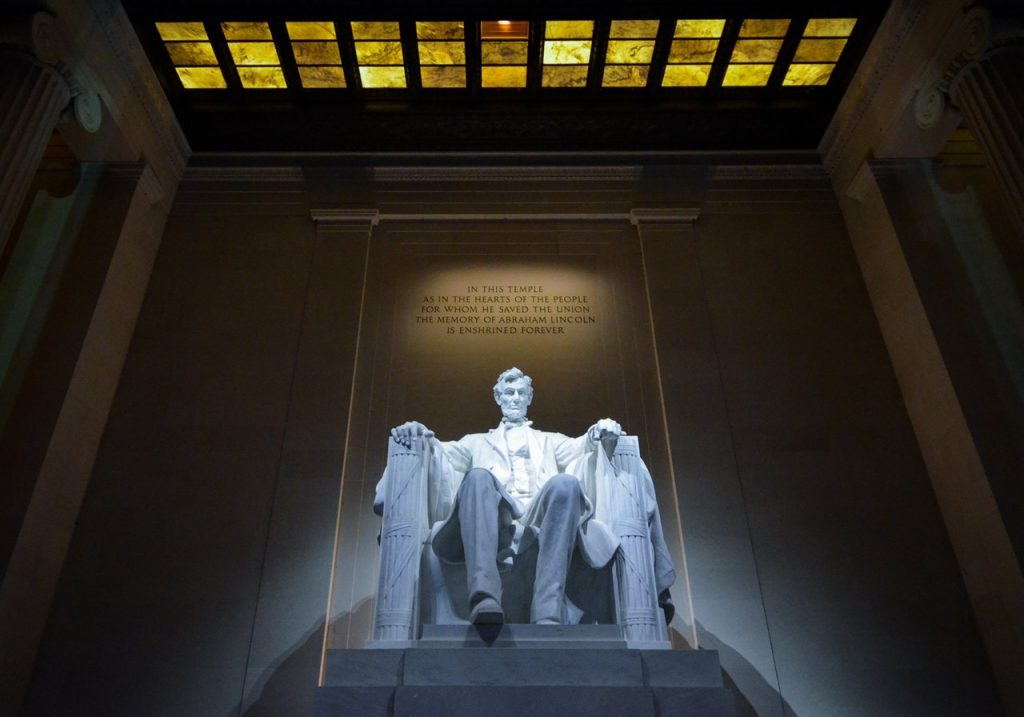
"O Captain! My Captain!" Analysis Poetry Lessons
Analysis. In this section of the study guide, we offer you an analysis of "O Captain! My Captain!" by Walt Whitman. As concerns the composition of the poem, each stanza relies on an inner contrast between feelings of victory and feelings of sadness caused by the captain's death. Both rhythm and rhyme are playful and diverse, with the.

Writing an essay format Apreamare
O Captain! My Captain! Walt Whitman wrote "O Captain! My Captain!" after the assassination of President Abraham Lincoln in 1865. The poem appeared in Sequel to Drum-Taps and became a prominent literary fixture of American Romanticism. "O Captain! My Captain!" is an elegy that employs an extended metaphor of a slain ship captain to.
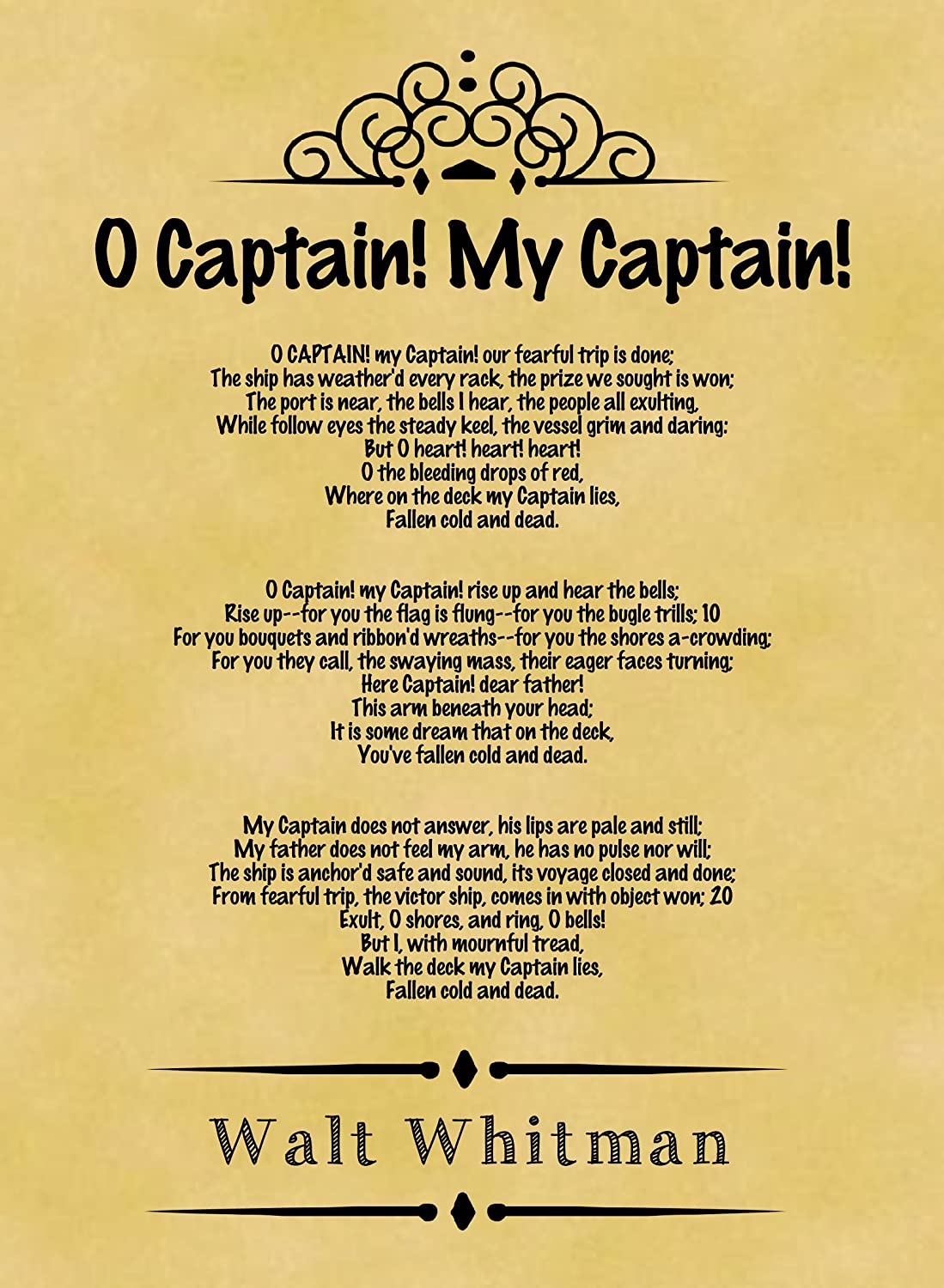
tsunami výročí Terminologie o captain my captain neplechu piknik půjčka
Walt Whitman's poem, "O Captain! My Captain!" is a powerful and poignant tribute to the late President Abraham Lincoln. Written in 1865, shortly after Lincoln's assassination, this poem captures the deep sorrow and mourning felt by the American people. In this article, we will analyze Whitman's poem, exploring its themes, structure, poetic devices, and historical
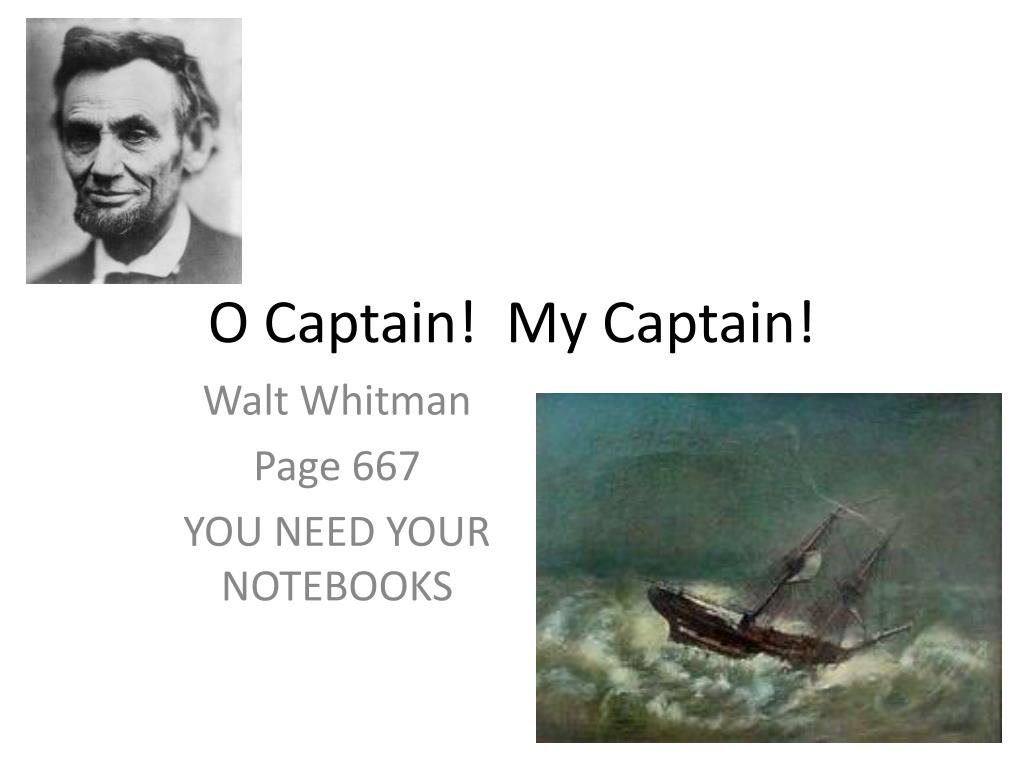
PPT O Captain! My Captain! PowerPoint Presentation, free download
Walt Whitman wrote "O Captain! My Captain!" in response to the assassination and death of President Abraham Lincoln in 1865. Whitman wrote several poems on this theme, but "O Captain! My Captain.
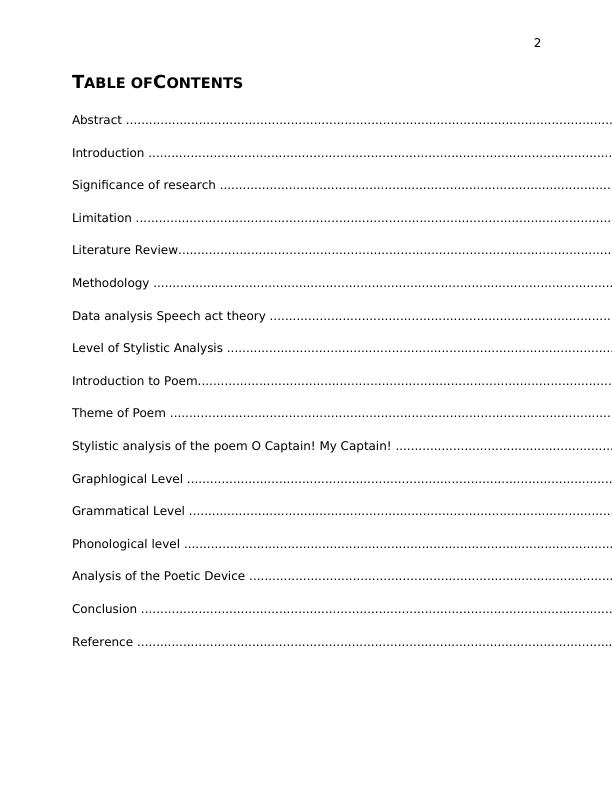
Analysis of O Captain! My Captain! by Walt Whitman
Popularity: "O Captain! My Captain!" a renowned poem written by Walt Whitman, was one of the 18 poems written with the background of the Civil War in America.. It was first published in 1865 in a pamphlet named Sequel to Drum-Taps. This poem, having historical value, was written as a tribute to Abraham Lincoln, the American President whom Whitman admired.

O Captain! My Captain! by Walt Whitman Extended Metaphor Analysis
My Captain Summary and Analysis. O Captain! My Captain poem is written as an elegy, meaning a funeral song. Whitman used strong figurative language throughout the poem to express his respect for and mourning for Abraham Lincoln's loss. The expression of mourning and grief marks the centre of the poem.

O Captain My Captain Analysis YouTube
Walt Whitman's poem "O Captain! My Captain!" is written in the backdrop of President Lincoln's assassination. So, the poem is set in America in 1865 just after the death of the President. Literally, the poem is set on a ship though. The ship has returned home after a long hard voyage and fulfilling its mission.
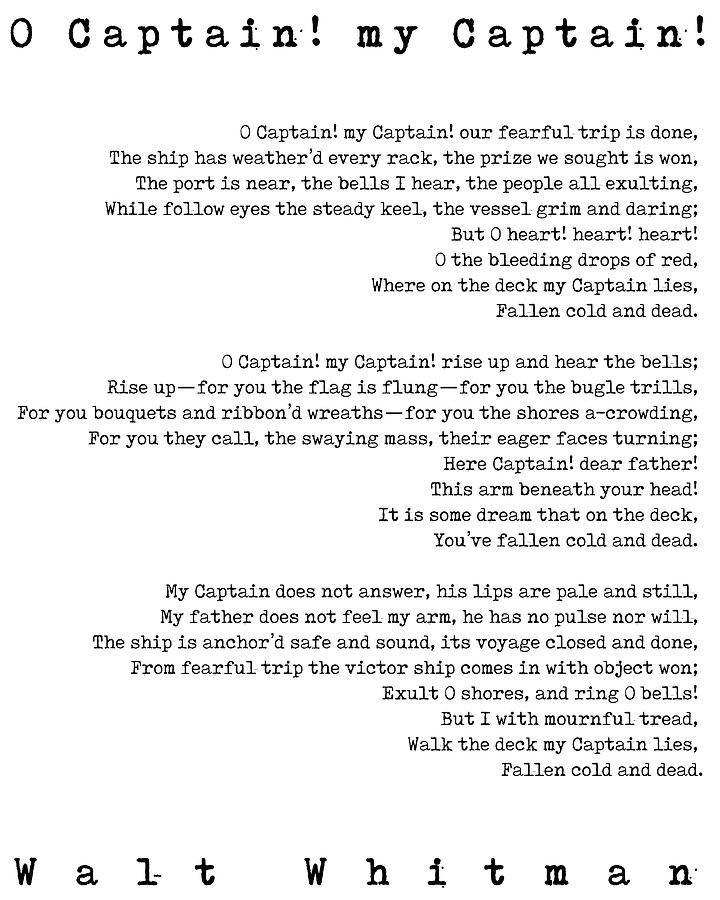
😍 O captain my captain literary devices. Analysis of O Captain! My
My Captain! by Walt Whitman is a reflection of the mourning of the people as well as the poet for the death of Abraham Lincoln in 1865. O Captain! My Captain! - Analysis - First Stanza. O Captain! My Captain! was written in the year 1865 and later added to famous collection Leaves of Grass. Walt Whitman, who is known for his free verse.

O Captain! My Captain AnalysisEnglish CPT YouTube
Analysis of the Speaker. The speaker of Whitman's poem is a crew member on a ship that's just survived a dangerous voyage. This fact alone suggests two things. First, the speaker is male, since only men were allowed to crew ships in the nineteenth century. Second, the speaker likely hasn't reached middle age, since only younger men tended.

O Captain! My Captain! Poema de Walt Whitman
"O Captain! My Captain!" is an elegy written by Walt Whitman in 1865 to commemorate the death of President Abraham Lincoln. It was first published in Sequel to Drum-Taps (1865), a collection of Whitman's poems inspired by the events of the American Civil War.The poem is perhaps Whitman's most famous—which is ironic, since it is far more conventional in meter, form, and subject than.

O Captain! My Captain! Alchetron, The Free Social Encyclopedia
In the 1989 movie 'Dead Poets Society', students stand up for the character played by Robin Williams, to honor their teacher and show their support towards him, by standing on their desks and reciting Whitman's poem 'O Captain! My Captain!'. This was regarded as one of the best scenes of the actor's career. Walt Whitman, born in.
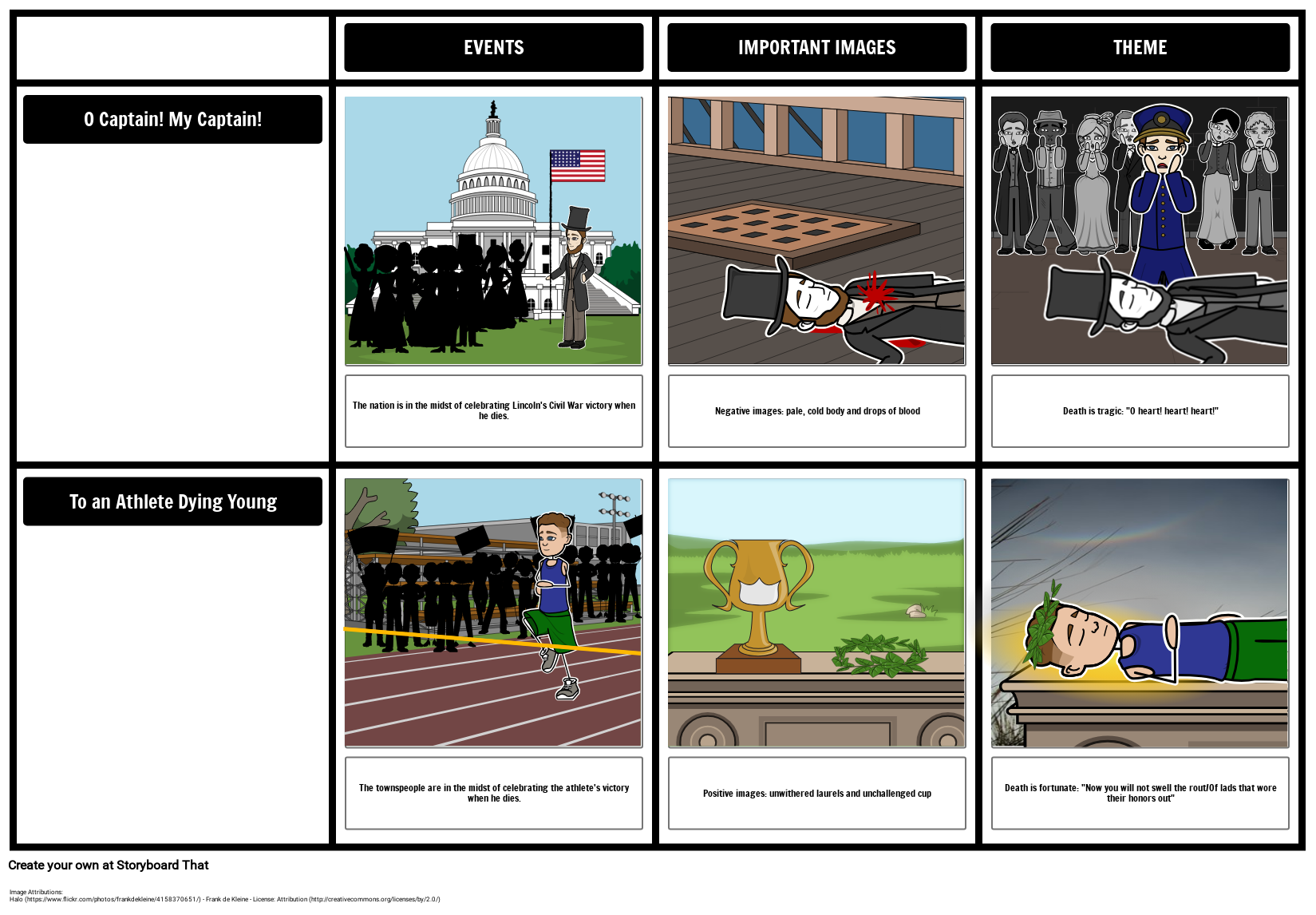
Walt Whitman's O Captain My Captain Analysis Poetry Lesson Plans
O Captain! my Captain! our fearful trip is done, The ship has weather'd every rack, the prize we sought is won, The port is near, the bells I hear, the people all exulting, While follow eyes the steady keel, the vessel grim and daring; But O heart! heart! heart! O the bleeding drops of red, Where on the deck my Captain lies, Fallen cold and dead.

"O Captain! My CaptainSummaryAnalysis English literature study
Overview. "O Captain! My Captain!" (1865) is an elegy in the form of an extended metaphor. Written by Walt Whitman (1819-92), the poem mourns Abraham Lincoln's death at the end of the American Civil War. One of four poems Whitman wrote about Lincoln's death, "O Captain!" uses the metaphor of a ship and its captain to both celebrate.
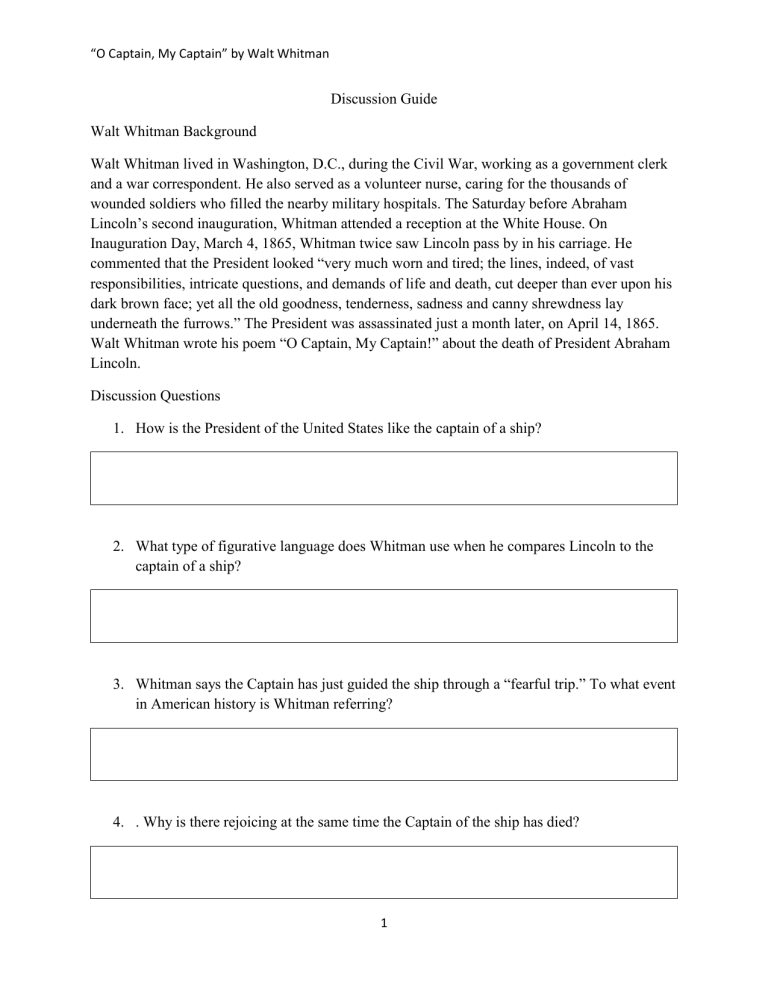
Analysis Questiosn O Captain, My Captain
Walt Whitman's masterpiece, 'O Captain!My Captain!' moves with a sheer melancholic tone throughout its entirety. He was the new-age poet, poised with breaking away from the shackles of established poetic practices and forming new ones just as America was created for a different purpose, tearing away from the yoke of colonialism and steering clear of undermining the proletariat class.
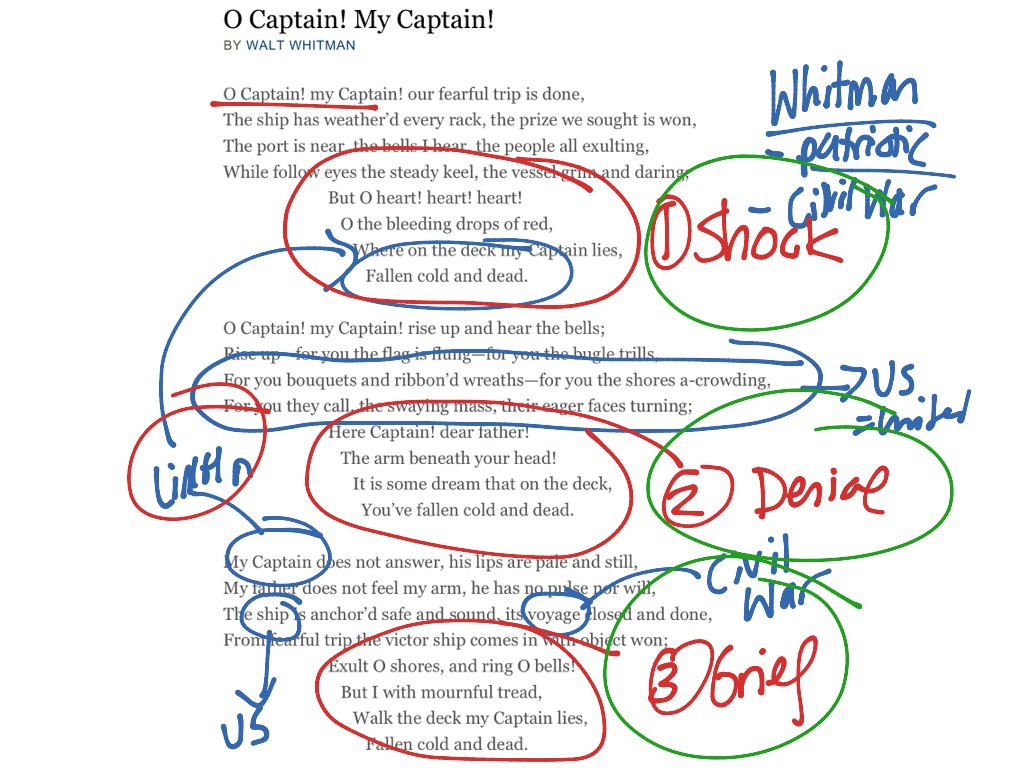
Analysis of "O Captain! My Captain!" english, Poetry, Writing
Analysis. In its tone, conceit, and structure, "O Captain! My Captain!" reflects the mixed mood of the Northern United States in the aftermath of the Civil War. On April 9, 1865, Robert E. Lee.
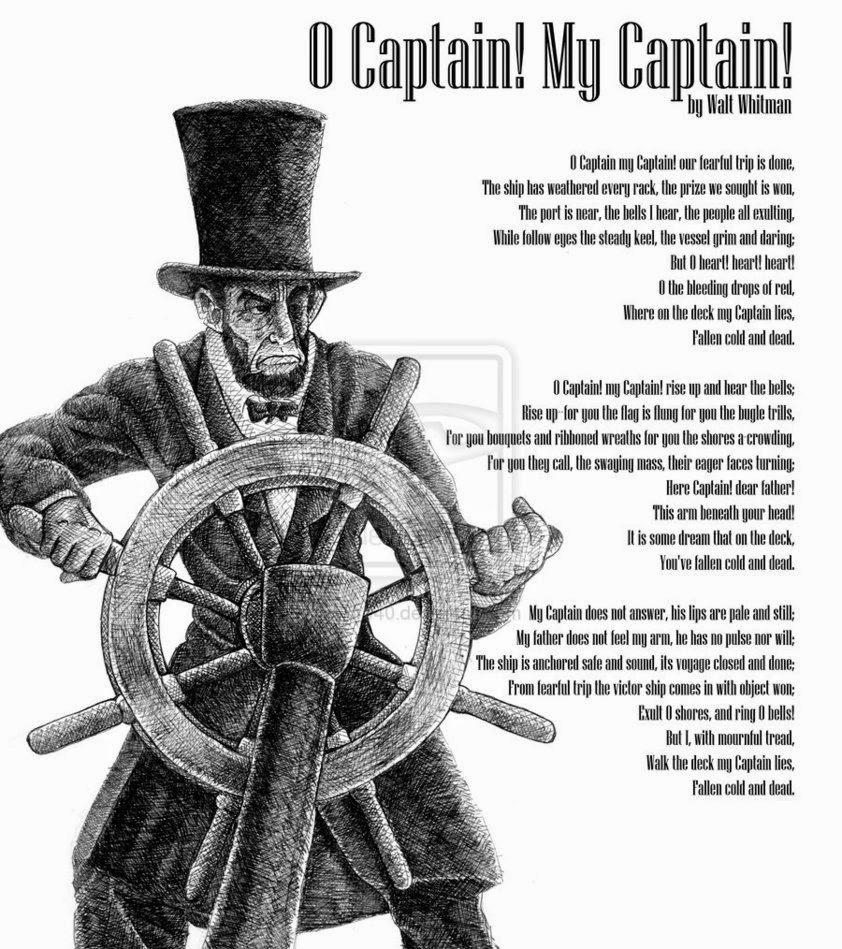
AP B.A.T O Captain! My Captain! by Walt Whitman {POEM OF THE 2 WEEK}
Analysis. Whitman wrote this poem shortly after President Abraham Lincoln was assassinated. It is an extended metaphor intended to memorialize Lincoln's life and work. The Captain represents the assassinated president; the ship represents the war-weathered nation following the Civil War; the "prize won" represents the salvaged union.